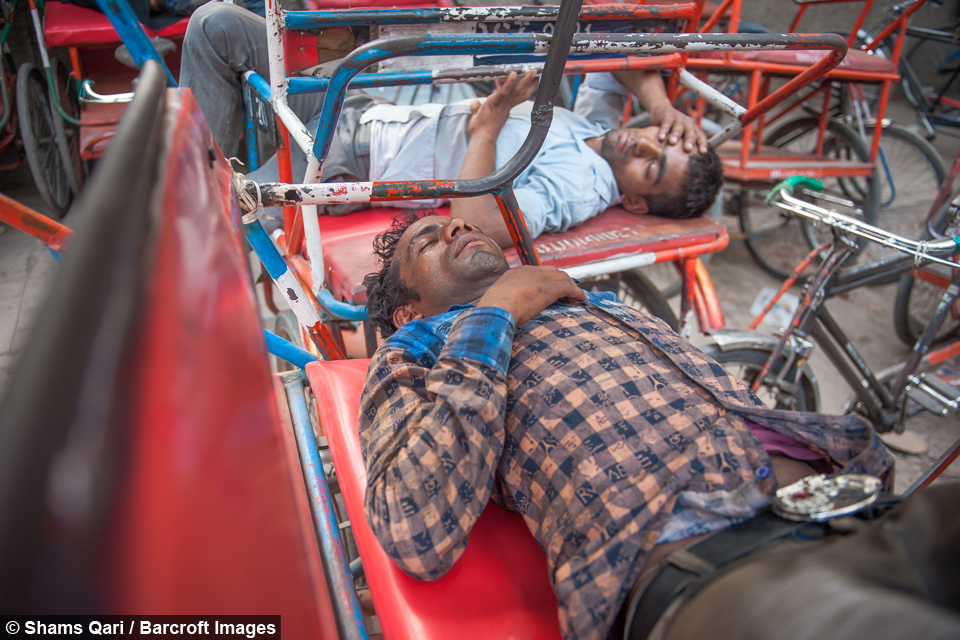Delhi's Army Of Rickshaw Pullers
By Shams Qari @shamsqari
Scroll down for the full story
Over short but crowded roads, or for stretches as long as five kilometres, these rickshaw pullers suffer everything from hot summers, to cold winters to homelessness.
With population expansion higher than ever in India’s capital, their home is a rickshaw parked either on a highway or in the lanes and bylanes of the city.
About 90% of rickshaw pullers migrate from the neighbouring states of Uttar Pradesh and Bihar.
Ram Hassan, 51, a rickshaw-puller originally from Uttar Pradesh says: “I have been coming to Delhi for more than 10 years for work. I spend most part of the year away from my family, here in Delhi.
“Initially I was a labourer but the exploitation of that field forced me to look for other job. I chose rickshaw pulling because instead of waiting for months, I get paid as soon I drop the passenger.”
Rickshaw pulling is one of the hardest and least respected jobs in India’s capital. Unable to afford a room to live in, most of the rickshaw pullers choose a safe roadside to park their rickshaw and spend the night on it while others find space in rickshaw garages.
Rakesh Singh, originally from Bihar, says: “This rickshaw belongs to a person nicknamed Raju. He owns more than one thousand rickshaws and charges us 60 rupees a day to use them.
“I spend about 15 hours riding my rickshaw on the streets of Old Delhi. No one has a space for us here so every night I choose a spot to spend my night.”
These rickshaw pullers mostly choose the short routes that lead to the metro stations. Earning anywhere between £5 to £15 a day, their peak time of the year is summer.
Mohammad Aejaz, 32, says: “In summer people do not prefer walking, even if the distance is short. It helps us earn more but the introduction of electronic rickshaws has pushed us down the line.
“I cannot afford an electric rickshaw but that does not mean I will stop working. I prefer working with what I have even if that means I have to work for extra hours.”
Irfan, 19, originally from Uttar Pradesh, says: “I sleep on the footpath near a metro station. A few months back, while I was sleeping, someone stole my money. This is a routine for us.”
“No one thinks about us. We are bullied and shouted upon if a car gets stuck behind us. Our life is miserable but we don’t have a choice.”
Among those rickshaw pullers who sleep in the open, many suffer from diseases like Dengue and Malaria during hot summer days. Unable to afford the treatment and being unable to work, they prefer to travel back to their homes.
The Delhi High Court ruling has upheld their right to earn a livelihood. But Vighnesh Jha, founder of FORPA (Federation of Rickshaw pullers Association), says the rickshaw pullers continue to be off the radar of the policy makers.








